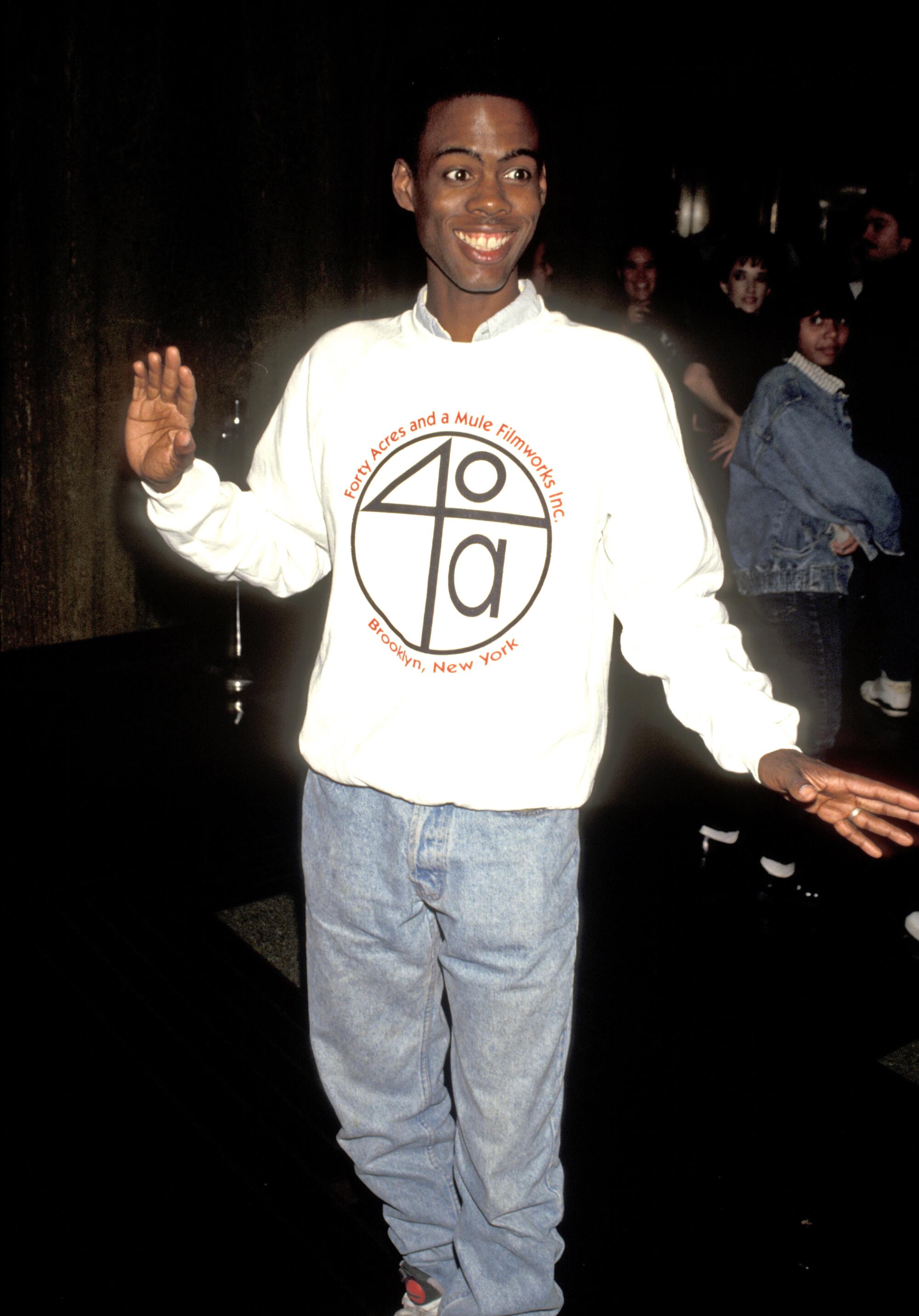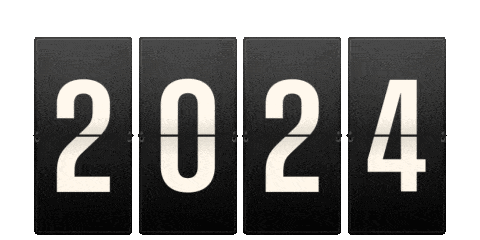Animation by Tomasz Czajka / For the Times; photographs by Getty Images, HBO, NBC, Los Angeles Times, Warner Bros. Pictures
- Share via
School shootings, presidential sex scandals, taxes, racism and the big piece of chicken.
Despite all the ways that the world has changed since Chris Rock stepped onstage to deliver his third special, “Bigger & Blacker,” which premiered on HBO on July 10, 1999, all you have to do is watch it to realize how much the concerns of our country are still the same. Taking the stage in an oversize leather coat, looking like Morpheus from the year’s hit movie “The Matrix,” Rock pierced the heart of the country with a blade of truth that made us laugh until it hurt — and kept going until the pain felt good.
In an era when comedy specials still felt special because only those in the highest echelon were even allowed to have one, Rock’s follow-up to the groundbreaking “Bring the Pain” was a high-wire act that reminded us that the multi-hyphenate — then at the peak of his celebrity — ultimately values one thing above all else: telling jokes that ring true to Black America, with punchlines that are quotable for anyone with a pulse and sense of humor.
The 1999 Project
All year we’ll be marking the 25th anniversary of pop culture milestones that remade the world as we knew it then and created the world we live in now. Welcome to The 1999 Project, from the Los Angeles Times.
On the heels of filming a major movie (“Lethal Weapon IV”) and anchoring hit TV shows (“Saturday Night Live,” “The Chris Rock Show”), Rock could’ve easily played it safe by softening the edges in his act to avoid turning off the mainstream. Instead he cranked up the volume by doing what every great comic does when faced with controversy — doubling down.
Belied by his diminutive frame (which we now know can take a hit), Rock’s persona in the 1990s was caustic, aggressive and truthful, down to the way he paced back and forth onstage. The purpose in his jokes matched his stride as he opened with jokes about Columbine and the “trench coat mafia.”
“What the hell is wrong with these white kids shooting up the school? They don’t even wait till 3 o’clock either. Killing people in the morning, that ain’t right!”
In moments like these, comics of Rock’s caliber know how to distill tragedy to its most hilariously simplistic elements. The imagery of a group of homicidal misfit teens having more friends than Rock ever had when he was in school turned mass murder into a joke that slayed his audience.

One has only to replay the crowd reactions throughout the special to see its effect. When was the last time you saw crowd laughter in a special that was almost as funny as the jokes themselves? People falling over onto their loved ones sitting next to them, standing up with their best Arsenio-esque “Whoop! Whoop!” and rolling in the aisles like Pentecostals moved by the spirit. The absence of cellphone cameras makes it feel like a moment when the entire crowd at the iconic Apollo Theater in Harlem was in it together, which is how the special made people watching at home feel.
To this day, Rock’s jokes about the differences between men and women — from former President Bill Clinton and First Lady Hillary Clinton to the people in our own families — made “Bigger & Blacker” an instant classic. Most Rock fans can quote the special by heart after 25 years.
Some of the best lines (that we can repeat):
“We don’t need gun control, we need bullet control. I think all bullets should cost $5,000. ’Cause if a bullet cost $5,000 there’d be no more innocent bystanders.”
“It’s all about Mama, Mama, Mama. Nobody give a f— about Daddy. Think about everything a real daddy does … and what does Daddy get for all his work? The big piece of chicken, that’s all Daddy gets.”
“Clinton damn near got impeached for what? For what? Lying about [oral sex] so his wife wouldn’t find out. Is that against the law? Do you need the Supreme Court for that one? You could have took that one to ‘The People’s Court.’ You could have took that one to Judge Judy.”
“We got all these taxes. ... You don’t get the money till you’re 65, meanwhile the average Black man dies at 54. S—, we should get Social Security at 29. We don’t live that long. Hypertension, high blood pressure, NYPD, something will get you.”
“All I had when I was a kid was Robitussin. No matter what you got, Robitussin better handle it. ‘Daddy, I got asthma.’ ‘Robitussin!’ ‘I got cancer.’ ‘Robitussin!’ ‘I broke my leg.’ Daddy poured Robitussin on it.”
“They ain’t never curing AIDS, don’t even think about it. There ain’t no money in the cure, the money’s in the medicine. That’s how a drug dealer makes his money, on the comeback. That’s all the government is, a bunch of motherf— drug dealers!”
Even today, most comedy stars at the height of their commercial success wouldn’t get anywhere near half the jokes Rock spouted onstage. Whether fearful of angering half the country, Hollywood executives or activist groups, even the most provocative comics can reach a point where they shy away from poking the bear in favor of a squeaky-clean gig with steady residuals. And it’s possible that “Bigger & Blacker” cost Rock the chance to make an even bigger bag somewhere down the line. But onstage, he proved that the price of greatness trumps the price of gold any day of the week.
Listening back to his jokes, it’s even more amazing how true they remain given where we find ourselves as a nation a quarter century later, on the verge of yet another high-stakes presidential election and with new deadly viruses and racial tensions and suffocating costs of living bearing down on us. Without specials like “Bigger & Blacker” to keep us laughing through the pain, society might just wake up from “The Matrix” and realize that we’re doomed. Just as it was back in 1999, the need for laughter to ease the tension is the primary reason people will always turn to stand-up — and to Rock, who remains the Morpheus of the art form decades later.
More to Read
The biggest entertainment stories
Get our big stories about Hollywood, film, television, music, arts, culture and more right in your inbox as soon as they publish.
You may occasionally receive promotional content from the Los Angeles Times.













